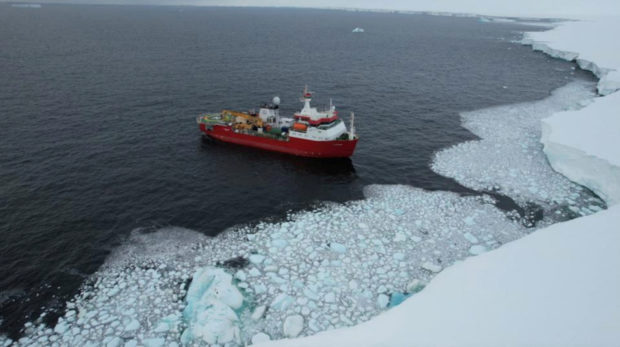
FILE PHOTO: Italian ice breaker vessel Laura Bassi carrying scientists researching in the Antarctic, sails near the Bay of Wales, Antarctica, in this handout photo obtained by Reuters on January 31, 2023
ROME — An Italian ice-breaker carrying scientists researching in the Antarctic has sailed further south than any ship has done before, the organizers of the voyage said on Tuesday, a further sign of how ice is retreating around the poles.
The Laura Bassi vessel reached a point with the coordinates of 78° 44.280 S in the Bay of Whales in the Ross Sea, according to Italy’s National Institute of Oceanography and Applied Geophysics.
The voyage was made possible by an unusual lack of ice in the area, it said. Satellite analysis last year showed that Antarctica’s coastal glaciers are shedding icebergs more rapidly than nature can replenish.
“I am happy with setting a record, but at the same time I am sad to see that things are really changing here in Antarctica and in the world in general,” Franco Sedmak, the ship’s captain, told Italy’s ANSA news agency.
A previous voyage with a different vessel to the same area in 2017 came up against impenetrable ice, he said.
“I never thought that I would find such a melting of the ice after a few years to be able to go as far south as we managed this year, helped by pushing and being a bit daring.”
Researchers from the Laura Bassi took samples to study fish in the waters and explored to a depth of 216 metres to help get a better understanding of the sea currents.
An initial analysis showed the water remained extremely cold and a high density of larval and juvenile stages of fish species, with some varieties rarely observed in the Ross Sea, and a large amount of unicellular algae.